During the 1970s, David Bowie found solace in the vibrant underground culture of West-Berlin. Immersed in the city’s creative energy, he drew inspiration that would transform his musical output, leading to the creation of his acclaimed "Berlin Trilogy." Bowie’s time in the city left an indelible mark, as he explored the metropolis’ dynamic artistic landscape and influential venues like Hansa Studios. This formative period in Bowie’s career has cemented Berlin’s legacy as a crucial influence on his evolving persona and the musical icons he would go on to produce.
Key Points
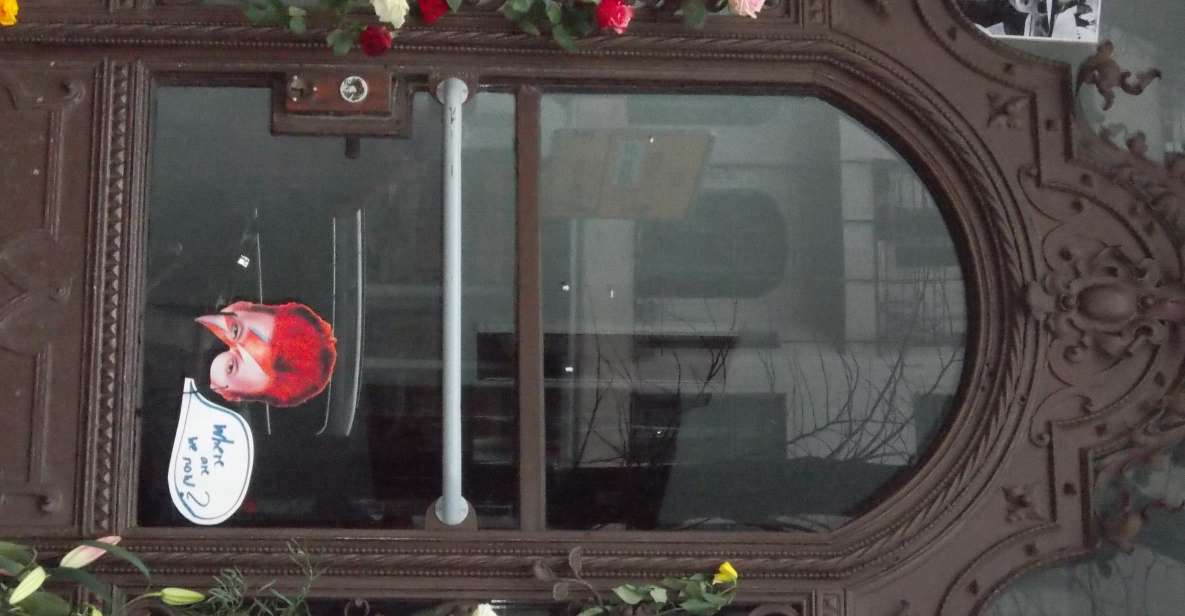
-
David Bowie lived in West-Berlin from 1976 to 1978, during which time he was inspired by the city’s underground culture and creative energy, leading to his influential ‘Berlin Trilogy’ albums.
-
Bowie’s time in Berlin significantly impacted his artistic evolution, as the city’s atmosphere and vibrancy shaped the development of iconic songs like ‘Heroes’ and ‘Neukölln’.
-
The tour highlights key locations that were pivotal to Bowie’s Berlin experience, including Hansa Studios where he recorded groundbreaking albums, and former clubs like Chez Romy Haag and Dschungel.
-
Bowie’s personal residence in the Schöneberg district of Berlin served as a source of inspiration, as it was the site of writing and recording the ‘Berlin Trilogy’ albums.
-
The tour provides an immersive experience in the artistic freedom and vibrant underground culture of 1970s West-Berlin, which is credited with influencing Bowie’s creative output during this transformative period.
It's also worth checking out some other tours and experiences nearby.
Tour Overview
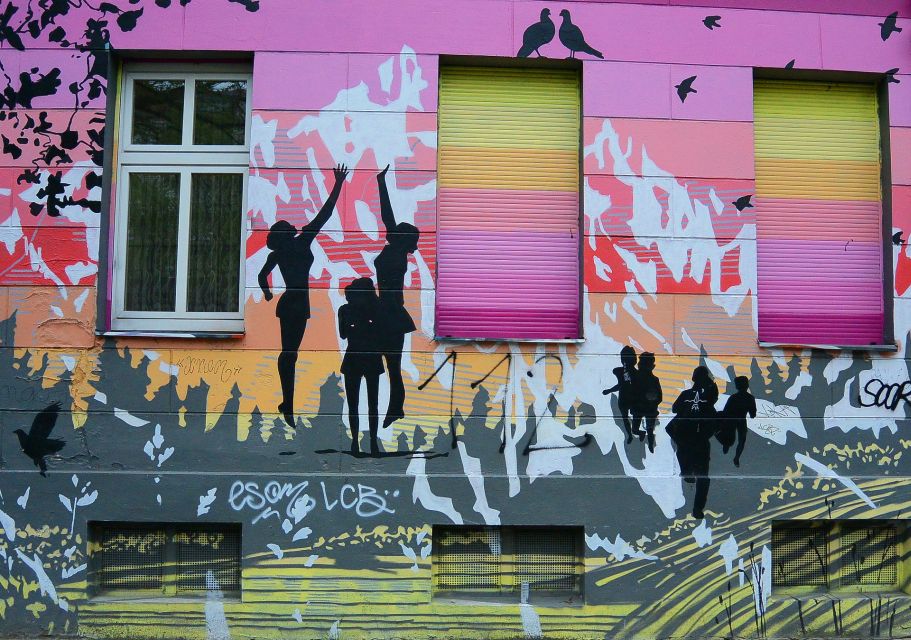
This tour offers a 3-hour exploration of David Bowie’s time in 1970s West-Berlin, priced from $267.51 per group (up to 7 participants) and available in English, French, and German.
It’s a private group experience with free cancellation up to 24 hours in advance. Guests can flexibly reserve and pay later.
The tour highlights include standing in front of Hansa Studios, visiting former club locations, seeing Bowie’s Berlin home, and experiencing the atmosphere of 1970s West-Berlin.
Hotel pickup is available upon request, and the tour provides in-depth insights into Bowie’s life and how the city influenced his music and art.
Food, drinks, and gratuities aren’t included.
Bowie’s Influence in Berlin
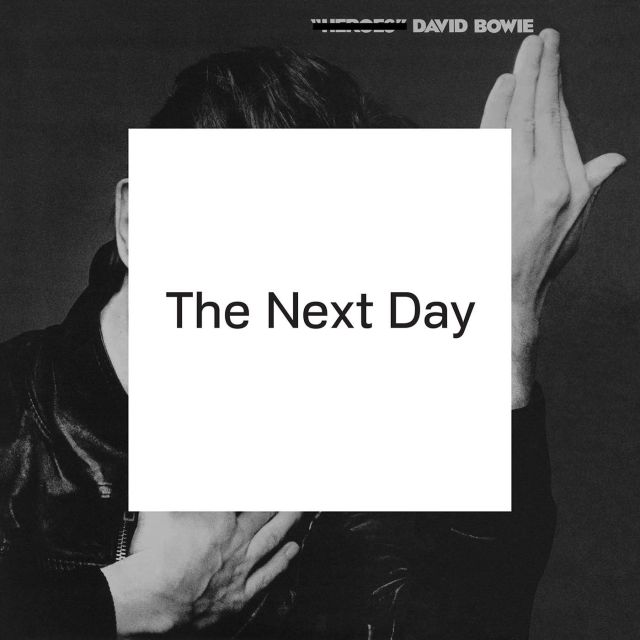
David Bowie lived in West-Berlin between 1976 and 1978, drawn by his fascination with the city’s burgeoning electronic music scene.
Bowie’s move to Berlin was initially influenced by his stay in the apartment of Edgar Froese, the founder of Tangerine Dream. The experience had a profound effect on Bowie, inspiring several of his most iconic songs, including ‘Heroes,’ ‘Boys Keep Swinging,’ ‘Yassassin,’ and ‘Neukölln.’
Bowie immersed himself in the underground culture of 1970s West-Berlin, which helped shape the sound and aesthetic of his famed ‘Berlin Trilogy‘ albums. The city’s atmosphere and creative energy left an indelible mark on Bowie’s artistic evolution during this pivotal period of his storied career.
Tour Highlights
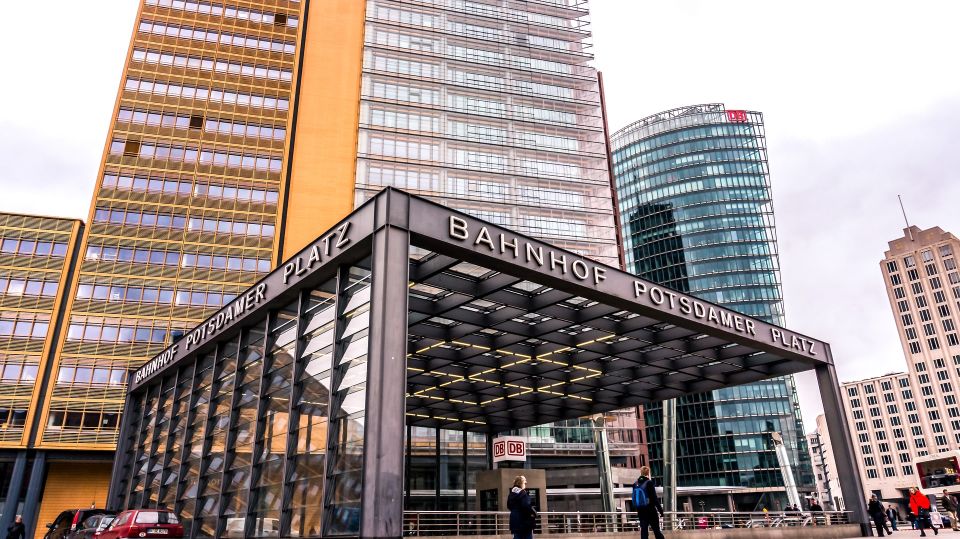
The tour takes participants through the vibrant 1970s West-Berlin, showcasing the key locations that influenced and inspired David Bowie during his time in the city.
Visitors will stand in front of the iconic Hansa Studios, where Bowie recorded his groundbreaking albums. They’ll also visit former club locations like Chez Romy Haag and Dschungel, seeing the atmosphere that captivated Bowie.
The tour then leads to Bowie’s former residence, providing a glimpse into the artist’s personal life in the city.
Throughout the experience, guests will gain a deeper understanding of how Berlin’s creative energy and culture infused Bowie’s music and art during this pivotal period of his career.
Tour Route
The tour starts at the Martin Gropius Bau, the site of a 2014 Bowie exhibition, and passes through Potsdamer Platz, which was featured in his song ‘Where Are We Now’.
The route then includes a visit to the iconic KaDeWe department store and other significant locations from Bowie’s time in West-Berlin.
Finally, the tour ends at David Bowie’s former Berlin home, where participants can enjoy the atmosphere of 1970s West-Berlin that so profoundly influenced the musician’s art and music.
Throughout the journey, the guide provides in-depth insights into Bowie’s life and the impact the city had on his creative output during this pivotal period.
Hansa Studios and Former Clubs
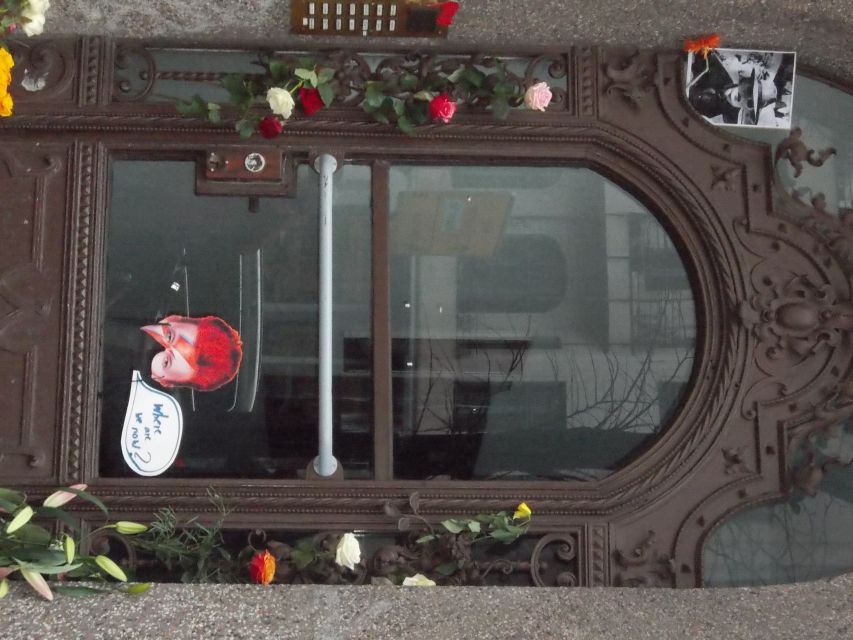
In an article titled ‘Berlin: David Bowie in 1970s West-Berlin’, it’s now time to discuss the CURRENT SUBTOPIC ‘Hansa Studios and Former Clubs’.
One of the highlights of the tour is a visit to Hansa Studios, the legendary recording studio where Bowie created some of his most influential works during his time in Berlin. Participants can stand in front of the iconic building and imagine the creative energy that filled the space as Bowie and other artists pushed the boundaries of music.
The tour also includes visits to former club locations that were integral to Bowie’s Berlin experience, such as:
-
Chez Romy Haag, a cabaret club where Bowie frequented.
-
Dschungel, a nightclub known for its avant-garde atmosphere.
-
David Bowie’s Berlin home, where he lived and drew inspiration.
David Bowie’s Berlin Home
Bowie’s Berlin home holds a special place within the tour, offering a glimpse into the artist’s private life during his influential stay in the city.
Located in the Schöneberg district, the apartment was Bowie’s primary residence in the late 1970s.
It’s here that he famously wrote and recorded his seminal ‘Berlin Trilogy‘ of albums – ‘Low’, ‘Heroes’, and ‘Lodger’.
The tour allows visitors to stand outside this unassuming building, imagining Bowie drawing inspiration from the surrounding urban landscape.
Seeing this modest dwelling brings the tour full circle, connecting Bowie’s musical legacy to the city that profoundly shaped his artistic vision.
Atmosphere of 1970s West-Berlin
Against the backdrop of the divided city, 1970s West-Berlin exuded a palpable air of artistic freedom and creative ferment. Amidst the tensions of the Cold War, the western half of the city had blossomed into a vibrant hub for experimental music, underground culture, and political counterculture. Bowie immersed himself in this dynamic atmosphere, finding inspiration in the city’s raw energy and embrace of nonconformity.
The thriving nightlife scene was characterized by:
-
Legendary venues like Dschungel and Chez Romy Haag, which attracted a diverse, avant-garde clientele.
-
The burgeoning electronic music scene, with artists like Tangerine Dream pushing the boundaries of sound.
-
The presence of political dissidents and the underground art community, creating an atmosphere of intellectual and artistic ferment.
This cultural vibrancy captivated Bowie and left an indelible mark on his creative output during his Berlin years.
Additional Information
The tour includes hotel pickup upon request, allowing participants convenience and flexibility.
While food and drinks aren’t included, gratuities remain optional for participants.
The tour offers a unique opportunity to take in the atmosphere of 1970s West-Berlin and gain a deeper appreciation for Bowie’s artistic legacy.
In-depth insights into Bowie’s life in West-Berlin provide a comprehensive exploration of his influence and artistic development during that period.
Discussions on how the city shaped his music and art offer valuable context for understanding Bowie’s creative evolution.
With its flexible booking and free cancellation policy, the tour caters to the needs of various travelers seeking to uncover the secrets of Bowie’s Berlin experience.
Here's a few more nearby tours and experiences we think you'll like.
Frequently Asked Questions
Was Bowie Married During His Time in Berlin?
No, David Bowie wasn’t married during his time in Berlin between 1976 and 1978. He was in a relationship with Antonia Maymone, but they never married. Bowie’s focus was on his music and creative pursuits while living in the city.
Did Bowie Collaborate With Any Other Artists in Berlin?
During his time in Berlin, Bowie collaborated with several artists. He worked closely with Brian Eno, contributing to influential albums like "Low" and "Heroes." Bowie also connected with German electronic bands like Kraftwerk, influencing his experimentation with synthesizers and industrial sounds.
Were There Any Controversies Surrounding Bowie’s Stay in Berlin?
While Bowie’s time in 1970s West-Berlin was influential, there were no major controversies surrounding his stay. He lived and worked there peacefully, finding inspiration in the city’s vibrant music scene and art.
What Were Bowie’s Daily Routines and Activities in Berlin?
Bowie’s daily routines in Berlin often involved recording at Hansa Studios, frequenting local clubs like Chez Romy Haag and Dschungel, and drawing inspiration from the city’s electronic music scene. He’d also visit his home, where he found solace from the surrounding chaos.
How Did Bowie’s Personal Life in Berlin Influence His Music?
Bowie’s personal life in Berlin heavily influenced his music. The city’s vibrant electronic music scene and creative atmosphere inspired him to experiment with new sounds, leading to acclaimed albums like "Heroes" that reflected his experiences living there.
Not for you? Here's more of our most recent tour reviews happening neaby
- WWII History in Berlin Private Tour & German-Russian Museum
- Skip-the-line Boat Cruise and Berlin’s Old Town Guided Tour
- Private Street Art & Graffiti Guided Tour in Berlin
- Workshop Berlin: Make Your Own Jewellery
- From Berlin: Private Guided Tour to Leipzig by Train
- Private German Beer Tasting Tour in Berlin Old Town
- Berlin: Jewish Heritage and History Private Guided Tour
- An Introduction to Berlin Walking Tour
- Berlin: Private Rally Through the City Center of Berlin
- Berlin: Private Walking Tour Through the City Center
- Alternative Berlin / Street Art Tour – Private Group
- Berlin: The Wall and Cold War – a Private Walking Tour
- Berlin: Hitler and the Third Reich – a Private Walking Tour
- Third Reich in Berlin – Private Tour
- Private Tour Alternative Berlin – Murals, Graffiti, Squats
Recap
David Bowie’s time in 1970s West-Berlin significantly shaped his artistic evolution.
The city’s vibrant underground culture and key locations like Hansa Studios inspired the creation of his iconic ‘Berlin Trilogy‘ albums.
Bowie’s Berlin years cemented the city’s legacy as a crucial influence on his music and persona, solidifying his status as a cultural icon.
